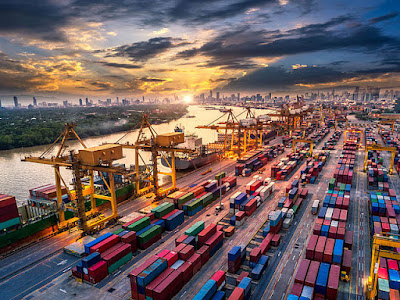''How we broke the world'' : IF recent months have shown us anything, it's that the world is not just flat, it's fragile. And we're the ones who made it that way with our own hands. Just look around.
Over the past 20 years, we've been steadily removing man-made and natural buffers, redundancies, regulations and norms that that provide resilience and protection when big systems - be they ecological, geopolitical or financial - get stressed.
We've been recklessly removing these buffers out of an obsession with short-term efficiency and growth, or without thinking at all.
At the same time, we've been behaving in extreme ways - pushing against, and breaching common - sense political, financial and planetary boundaries.
And, all the while, we've taken the world technologically from connected to interconnected to interdependent - by removing more fraction and installing more grease in global markets, telecommunications systems, the Internet and travel.
In doing so we've made globalization faster, deeper, cheaper and tighter than ever before. Who knew that there were regular direct flights from Wuhan, China, to America.
Put all three of these trends together and what you have is a world more easily prone to shocks and extreme behaviors - but with fewer buffers to cushion these shocks - and many more networked companies and people to convey them globally.
This, of course, was revealed clearly in the latest world-spanning crisis - the coronavirus pandemic. But this trend of more frequent destabilizing a crisis has been building over the past 20 years :
9/11, The Great Recession of 2008, Covid-19 and climate change.
Pandemics are no longer just biological - they are now geopolitical, financial and atmospheric, too. And we will suffer increasing consequences unless we start behaving differently and treating Mother Earth differently.
Note the pattern : Before each crisis I mentioned, we first experienced what could be called a ''mild'' heart attack, alerting us that we had gone to extremes and stripped away buffers that had protected us from catastrophic failure.
In each case, though, we did not take that warning seriously enough - and in each case the result was a full global coronary.
We created globalized networks because they could make us more efficient, and productive and our lives more convenient,'' explained Gautam Makunda, the author of ''indispensable : When Leaders Really Matter.''
''But when you steadily remove their buffers, backup capacities and surge protectors in pursuit of short- term efficiency or just greed, you ensure that these systems are not only less resistant to shocks, but we spread those shocks everywhere.''
The Honor and Serving of Latest Operational Research on Great Writings, continues. The World Students Society thanks author : Thomas L. Friedman.

.png)


0 comments:
Post a Comment
Grace A Comment!